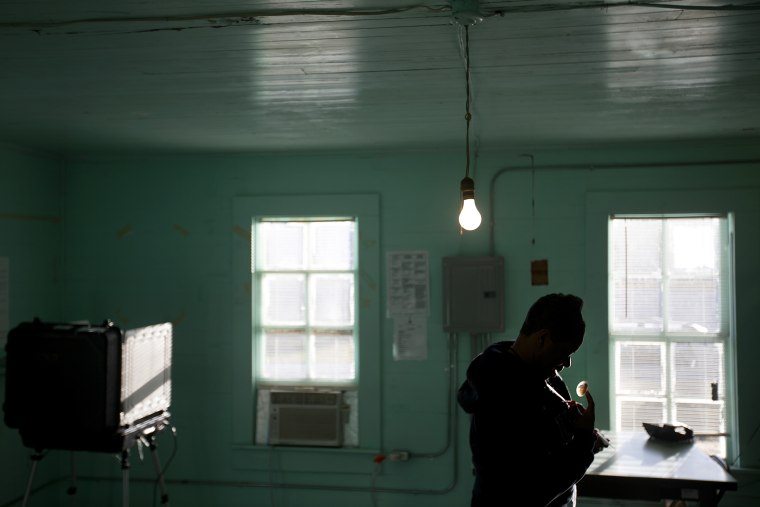The 2016 Republican presidential hopefuls have been lining up Monday to honor Martin Luther King Jr. But when it comes to one of King's signature achievements—ensuring that all Americans have access to the ballot box—their actions tell a different story.
Jeb Bush, Rand Paul, Marco Rubio, Scott Walker, Chris Christie, John Kasich, Mike Pence, and Bobby Jindal all have sent tweets to mark Martin Luther King Day. And why not? It’s an easy way for politicians of all stripes to acknowledge an American icon, and signal sensitivity to the concerns of minorities.
But actually working to defend King’s legacy appears to be much harder for the GOP’s leading voices. Not a single one has lifted a finger to help fix the Voting Rights Act (VRA), the landmark civil rights law that's still central to any account of King's significance. Indeed, nearly all have offered support over the last few years for their party's push to restrict voting rights. And some have even helped lead the effort.
PHOTO ESSAY: Remembering a revolutionary: Martin Luther King's life, in photos
In 2013, the Supreme Court badly weakened the Voting Rights Act (VRA), one of King’s most important accomplishments. That ruling opened the floodgates to a host of voting restrictions imposed by southern states that had previously been required to get federal approval for their voting laws. Reams of evidence show that many of these restrictions, including voter ID laws and cuts to early voting, disproportionately affect blacks.
In response to the court's ruling, several Republicans now mulling presidential runs exulted.
Rick Perry, then the governor of Texas, hailed the “clear victory for federalism and the states,” and announced that Texas’s strict voter ID law, which previously had been blocked under the VRA as racially discriminatory, could now go into effect.
Sen. Ted Cruz celebrated that “unelected federal bureaucrats” would no longer be able to stop states from implementing their own voting laws.
Gov. Bobby Jindal of Louisiana also cheered the decision.
And even Sen. Rand Paul, who has tried to carve out a reputation as a different kind of Republican on civil rights—he has worked to ease restrictions on voting by ex-felons—didn’t seem to see a problem. Paul noted that there’s no “objective evidence” that minorities are being stopped from voting.
Then last week, a key Republican lawmaker finally admitted what had seemed clear since last spring: That bipartisan legislation aimed at restoring the VRA to full strength is essentially dead. None of the party’s potential 2016 standard-bearers offered so much as a peep in protest.
Perry isn’t the only likely GOP hopeful who has actively put tough new voting restrictions in place. Walker, the governor of Wisconsin, has gone to the mat to fight for his own strict voter ID law, which he signed in 2011. A federal judge last year struck down the law, ruling that it violated even the weakened VRA by discriminating against minorities. But it was reinstated after an appeal by Walker’s administration.
Kasich, the governor of Ohio -- for years the most important presidential swing state -- signed legislation this year that cut early voting and eliminated same-day registration in his state—making it harder for minorities to get to the polls. That law, too, drew charges that it violated the VRA, and a trial is likely later this year.
Christie, the governor of New Jersey, vetoed a bill to establish early voting in his state. And in 2012, in making the case that voters should decide the issue of gay marriage, he suggested that black voting rights in the Jim Crow south should have been decided by referendum.
As for Cruz, in 2013 he sponsored legislation to allow states to require proof of citizenship from anyone registering to vote—which would make voter registration drives far harder while doing little to stop the minimal amount of non-citizen voting. Cruz’s bill is reportedly attracting interest from conservative Republican lawmakers as they develop an agenda for the new session of Congress.
